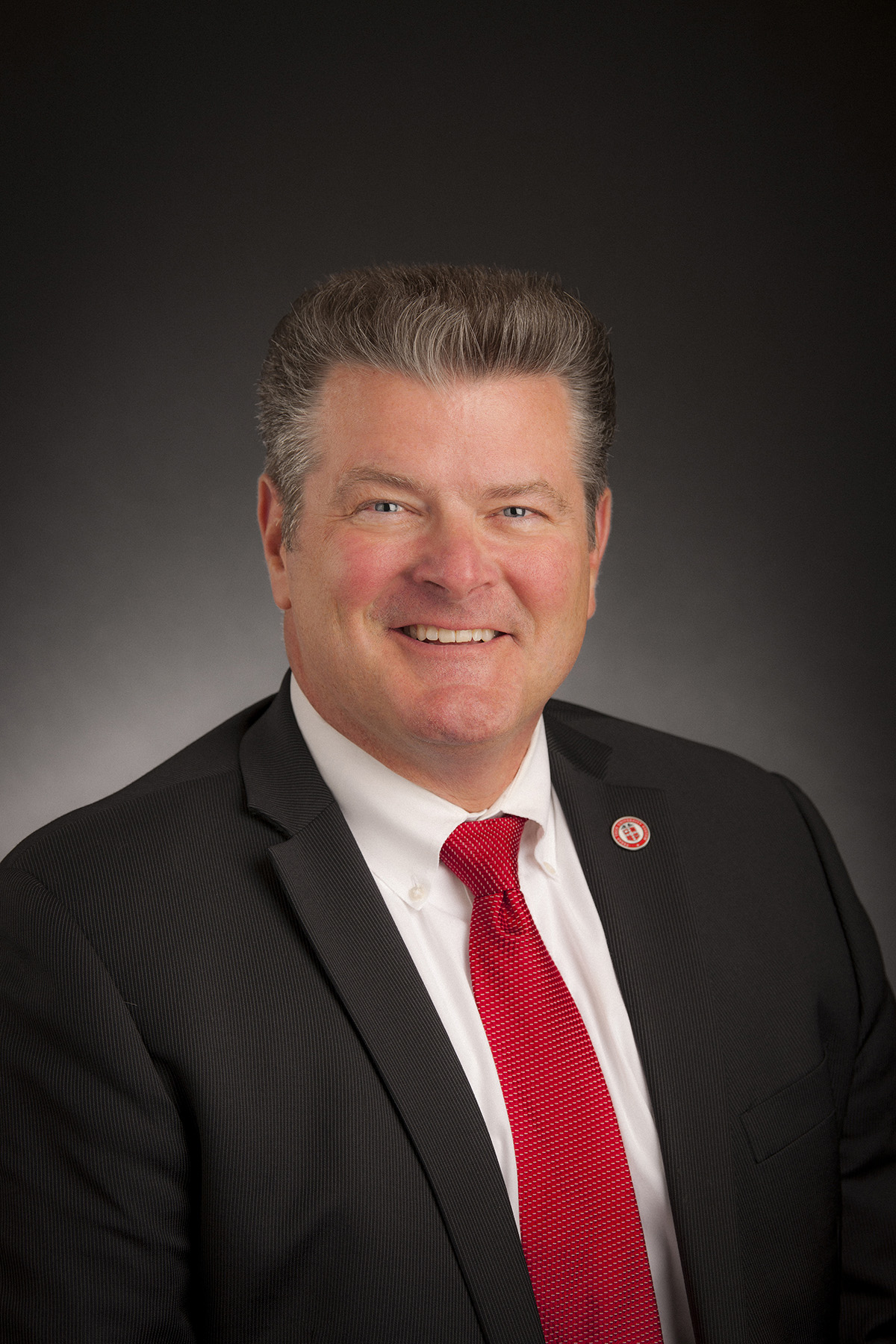General Information
University Mission Statement
As a public research university, Texas Tech advances knowledge through innovative and creative teaching, research, and scholarship. The university is dedicated to student success by preparing learners to be ethical leaders for a diverse and globally competitive workforce. The university is committed to enhancing the cultural and economic development of the state, nation, and world.
Campuses
Texas Tech University is the largest institution of the Texas Tech University System, with an enrollment of more than 40,000 students. The university also operates the Research Center-East Campus (Lubbock); Texas Tech University Farm at Pantex in the Texas Panhandle; research facilities at Reese Technology Center (west of Lubbock); agricultural field laboratories at New Deal; Texas Tech University Center at Junction (a 411-acre educational facility in the Texas Hill Country); and off-campus educational sites at Brownwood, Dallas-Fort Worth, El Paso, Forney, Fredericksburg, Jefferson, Marble Falls, and Waco. The university also has a campus in San Jose, Costa Rica.
History
Texas Tech University was created by legislative action in 1923 and has the distinction of being the largest comprehensive higher education institution in the western two-thirds of the state of Texas. The university is the major institution of higher education in a region larger than 46 of the nation’s 50 states, and it is the only campus in Texas home to a major university, law school, and medical school.
Originally named Texas Technological College, Texas Tech opened in 1925 with six buildings and an enrollment of 914. Graduate instruction began in 1927 within the School of Liberal Arts. A “Division of Graduate Studies” was established in 1935, which became known as the Graduate School in 1954.
By action of the Texas State Legislature, Texas Technological College formally became Texas Tech University on September 1, 1969. At that time, the schools of Agricultural Sciences, Arts and Sciences, Business Administration, Education, Engineering, and Home Economics also became known as “colleges.” Architecture became a college in 1986. Two colleges changed their names in 1993 to reflect the broadening fields each serves: the College of Agricultural Sciences became the College of Agricultural Sciences & Natural Resources, and the College of Home Economics became the College of Human Sciences. The Honors College was established in 1998, and the J.T. & Margaret Talkington College of Visual & Performing Arts opened in 2002. Media & Communication became a college in 2004.
The Texas State Legislature authorized funds in 1965 to establish the Texas Tech University School of Law, and the Law School’s first dean was appointed in 1966. The first class of 72 students enrolled in 1967. The Law School was approved by the American Bar Association in 1970 and is fully accredited by the Supreme Court of Texas (1968) and the Association of American Law Schools (1969).
In 2019, the Texas Legislature appropriated $17.35 million to Texas Tech University and directed the institution to undertake the steps necessary to open the School of Veterinary Medicine (SVM). Located in Amarillo, the SVM welcomed its inaugural class in the Fall of 2021, 50 years after the Texas Higher Education Coordinating Board (then the Texas College and University System Coordinating Board) initially approved Texas Tech.
As a member of the National Collegiate Athletic Association, Texas Tech began competing in the Big 12 Conference in 1996 after a 35-year membership in the former Southwest Conference.
Texas Tech was first accredited by the Southern Association of Colleges and Schools in 1928 and has been accredited continuously since that time. Texas Tech was selected to shelter a Phi Beta Kappa chapter in 2006.
The presidents of Texas Tech have been Paul Whitfield Horn (1925-1932), Bradford Knapp (1932-1938), Clifford Bartlett Jones (1938-1944), William Marvin Whyburn (1944-1948), Dossie Marion Wiggins (1948-1952), Edward Newlon Jones (1952-1959), Robert Cabaniss Goodwin (1960-1966), Grover Elmer Murray (1966-1976), Maurice Cecil Mackey Jr., (1976-1979), Lauro Fred Cavazos (1980-1988), Robert W. Lawless (1989-1996), Donald R. Haragan (1996-2000), David J. Schmidly (2000-2002), Jon Whitmore (2003-2008), Guy Bailey (2008-2012), M. Duane Nellis (2013-2016), and Lawrence E. Schovanec (2016-present).
The 61st Legislature created the Texas Tech University School of Medicine in 1969 as a multi-campus institution with Lubbock as the administrative center and regional campuses in Amarillo, El Paso, and the Permian Basin. In 1979, the charter was expanded, and the Texas Tech University Health Sciences Center was created with the addition of the School of Nursing, the School of Health Professions, and the Graduate School of Biomedical Sciences.
With the creation of the Texas Tech University System in 1996, the Texas Tech University Health Sciences Center became a separate institution.
In 2007, Angelo State University in San Angelo joined the Texas Tech University System. The school was founded in 1928 as a two-year college and began offering four-year degrees in 1965.
In 2013, the Texas Legislature approved the creation of Texas Tech University Health Sciences Center El Paso as the System’s fourth institution.
In 2021, Midwestern State University, a leading liberal arts university in Wichita Falls, became the fifth component institution of the Texas Tech University System following signed legislation from Governor Greg Abbott.
Organizational Structure
A nine-member Board of Regents governs Texas Tech University, Angelo State University, Midwestern State University, and the Texas Tech University Health Sciences Centers in Lubbock and El Paso. The Governor of the State of Texas appoints the Regents to six-year terms. The terms of office of three Regents expire every two years. The university’s governance, control, and direction are vested in the Regents, who appoint a Chancellor to carry out the System’s policies as determined by the Regents. The Chancellor appoints a president for each institution in the System. The presidents are chief executive officers of their respective institutions and are responsible for the strategic operation of each institution.
Texas Tech University is home to the Graduate School; School of Law; School of Veterinary Medicine; Honors College; Davis College of Agricultural Sciences & Natural Resources; Huckabee College of Architecture; Rawls College of Business; Whitacre College of Engineering; Talkington College of Visual & Performing Arts; and the Colleges of Arts & Sciences, Education, Human Sciences, and Media & Communication. Each college is administered by a dean and consists of many instructional departments or areas.
Office of the President

Lawrence E. Schovanec, Ph.D.
President
Ronald Hendrick, Ph.D.
Provost and Senior Vice President for Academic Affairs
Jamie Hansard
Vice President for Enrollment Management
Joseph Heppert, Ph.D.
Vice President for Research & Innovation
Grace Hernandez
Vice President for Administration and Chief of Staff
Kirby Hocutt
Director of Athletics
Byron Kennedy, J.D., CFP
Vice President for University Advancement
Noel Sloan, J.D., CPA
Senior Vice President for Administration & Finance and Chief Financial Officer
Jorge Iber, Ph.D.
Interim Vice President for Campus Access & Engagement
Matthew Dewey
Vice President for Marketing & Communications
Keith Halman
Interim Chief Information Officer
Texas Tech University System Chancellor / Board of Regents

Tedd L. Mitchell, M.D.
System Chancellor
Board of Regents
Term Expires January 31, 2025
Mark Griffin, Chair...........................Lubbock
Ginger Kerrick Davis, Vice Chair.....Webster
Dusty Womble..................................Lubbock
Term Expires January 31, 2027
Arcilia Acosta....................................Dallas
Cody Campbell..................................Fort Worth
Pat Gordon........................................El Paso
Term Expires January 31, 2029
Clay Cash...........................................Lubbock
Tim Culp............................................Midland
Shelley Sweatt...................................Wichita Falls
Student Regent
Term Expires May 31, 2025
Jad Zeitouni......................................Lubbock
Texas Tech University Academic Officers
Mark Sheridan, Ph.D.
Vice Provost for Graduate and Postdoctoral Affairs;
Dean, Graduate School
Jack Nowlin, J.D., Ph.D.
Dean, School of Law
Guy Loneragan, B.V.Sc., Ph.D.
Dean, School of Veterinary Medicine
Clint Krehbiel, Ph.D.
Dean, Davis College of Agricultural Sciences & Natural Resources
Urs Peter Flueckiger, M.Arch.
Dean, Huckabee College of Architecture
Tosha Dupras, Ph.D.
Dean, College of Arts & Sciences
Margaret L. Williams, Ph.D.
Dean, Rawls College of Business
Kamau Oginga Siwatu, Ph.D.
Interim Dean, College of Education
Roland Faller, Ph.D.
Dean, Whitacre College of Engineering
Jill Hernandez, Ph.D.
Dean, Honors College
Tim Dodd, Ph.D.
Dean, College of Human Sciences
Rob Stewart, Ed.D.
Interim Dean, College of Media & Communication
Martin Camacho, D.M.A., M.B.A.
Dean, Talkington College of Visual & Performing Arts
Patrick C. Hughes, Ph.D.
Dean, University Studies
Earnstein Dukes, M.L.S.
Dean of Libraries
Jeffrey Belnap, Ph.D.
Dean, TTU-Costa Rica
Official Publications
-
Address
Texas Tech Downtown Center Room 218 -
Email
officialpublications@ttu.edu
